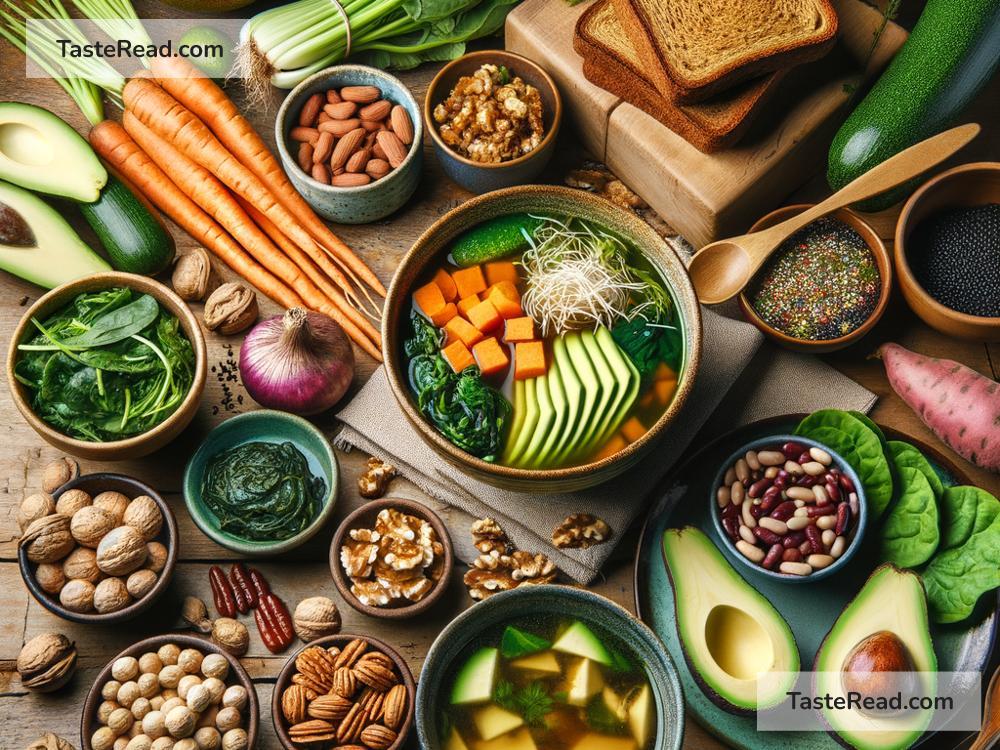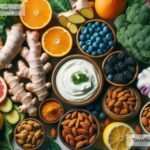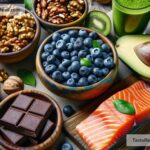Boost Your Incretin Response with the Right Foods
When we eat, our body works hard to break down food into usable energy. A key part of this process involves incretins—hormones that help regulate blood sugar and make you feel full. If you’re looking to improve your health, enhancing your body’s incretin response is a simple yet effective way to start. The good news is that your diet plays a significant role in boosting these powerful hormones.
In this article, we’ll explore what incretins are, why they matter, and which foods can help optimize their function—all explained in simple English.
What Are Incretins?
Incretins are hormones made in your gut whenever you eat. Their main job is to help your body manage blood sugar levels. Two key incretins are:
-
GLP-1 (Glucagon-like peptide-1): GLP-1 helps your pancreas produce insulin—the hormone your body uses to lower blood sugar. It also slows digestion, which keeps you feeling full longer.
-
GIP (Glucose-dependent insulinotropic polypeptide): GIP works alongside GLP-1 to regulate blood sugar by encouraging insulin production.
Together, these incretins act like traffic controllers, ensuring your body handles sugar effectively after a meal. When your incretin response is functioning well, it can help prevent blood sugar swings and promote a healthy metabolism.
Why Is Enhancing Incretin Response Important?
If your incretin response isn’t working properly, you might experience sugar spikes after eating, followed by crashes that leave you tired and hungry. Over time, this can contribute to insulin resistance—a condition that makes it harder for your body to manage blood sugar and increases the risk of type 2 diabetes.
On the flip side, a strong incretin response supports better blood sugar balance, weight management, and overall gut health. Certain foods naturally stimulate incretins, making them a great addition to your diet if you want to improve your metabolism and support your body’s energy needs.
Foods That Enhance Incretin Response
The following foods are known to help maximize your body’s incretin response. They’re nutrient-rich, delicious, and easy to incorporate into your meals.
1. High-Fiber Vegetables
Fiber slows digestion and helps incretin hormones last longer after meals. Vegetables packed with fiber also improve gut health, which plays a role in incretin production. Good options include:
– Broccoli
– Spinach
– Kale
– Brussels sprouts
– Carrots
These veggies are versatile—you can toss them into stir-fries, salads, or soups.
2. Whole Grains
Whole grains are another excellent source of fiber, plus they provide stable energy without causing sugar spikes. Choose whole-grain bread, oatmeal, quinoa, and brown rice to keep your gut working smoothly while supporting incretin activity.
3. Legumes
Legumes such as lentils, chickpeas, beans, and peas are rich in fiber and resistant starch. Resistant starch not only keeps you full longer but also promotes the healthy gut bacteria involved in incretin production.
Try adding beans to chili, making a chickpea salad, or whipping up lentil soup for easy, incretin-friendly meals.
4. Healthy Fats
Dietary fats have been shown to improve GLP-1 secretion after meals. Healthy fats are essential, but be mindful to choose the right types. Great sources of healthy fats include:
– Avocados
– Olive oil
– Nuts (almonds, walnuts, etc.)
– Seeds (chia seeds, flaxseeds, etc.)
Pairing healthy fats with fiber-rich foods makes meals more satisfying and enhances the incretin response.
5. Fermented Foods
Your gut microbiome—made up of trillions of bacteria—is important for incretin production. Fermented foods improve gut health by feeding beneficial bacteria. These foods include:
– Yogurt (look for unsweetened varieties)
– Kefir
– Sauerkraut
– Kimchi
– Miso
Adding fermented foods to your diet can help maximize incretin activation while keeping your digestion smooth.
6. Protein-Rich Foods
Proteins help improve GLP-1 secretion and promote insulin sensitivity. High-quality sources of protein include:
– Eggs
– Fish (like salmon and tuna)
– Lean chicken or turkey
– Tofu
– Tempeh
Incorporating protein into every meal ensures a balanced diet that supports incretin response.
7. Berries and Citrus Fruits
Fruits like blueberries, raspberries, oranges, and grapefruits are packed with antioxidants and fiber. The natural sugars in these fruits release slowly into your bloodstream, giving your incretin hormones plenty of time to respond.
Try eating a handful of berries as a snack or adding citrus fruits to your morning smoothie for a refreshing boost.
Tips for a Balanced Diet
To enhance your incretin response, aim to combine the above food groups into meals that are balanced and satisfying. For example, pair whole grains with healthy fats, protein, and fiber-rich vegetables. Snack on nuts or yogurt, and don’t forget the power of berries and fermented foods.
It’s also helpful to eat smaller, more frequent meals throughout the day rather than consuming large portions at once. This gives your body time to manage digestion and incretin production efficiently.
Final Thoughts
Improving your incretin response doesn’t have to be complicated—it starts with the foods on your plate. By choosing wholesome, nutrient-rich ingredients like fiber-filled veggies, whole grains, legumes, healthy fats, and fermented foods, you give your body the tools it needs to function optimally.
Remember, a strong incretin response means better blood sugar control, enhanced gut health, and improved energy levels. Start incorporating these foods into your meals today, and take one step closer to a healthier, happier life.


